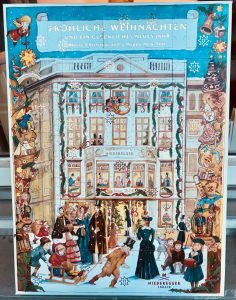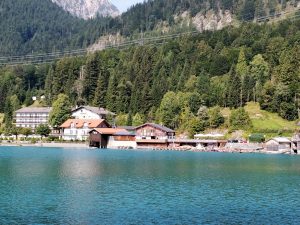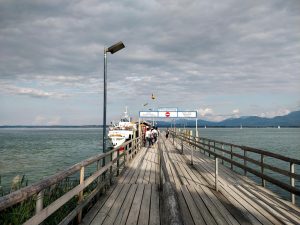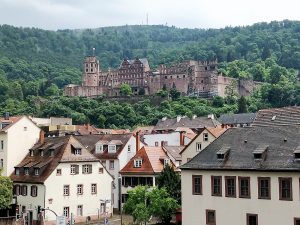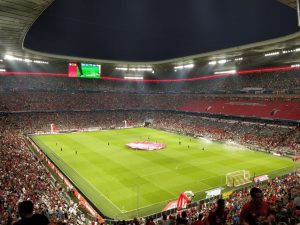St. Nikolaus Day is on the 6thof December. Nikolaus visits usually children in order to reward or punish them when being naughty. His story goes back on a legend. Nikolaus inherited prosperity from his parents, but he wasn’t satisfied and happy. Therefore he decided to give his life a deeper sense. While he was helping homeless people, he noticed, he has no pockets for giving food. Thus, he adapted a new style and filled his pockets with nuts, apples and mandarins. These became traditional presents for St. Nikolaus Day. He sacrifieced his old life and learned how to live in abstinence.
Here in Bavaria Nikolaus is accompanied by Krampus, a hairy and scary devil with horns. He punishes naughty children and together they represent the image of good and bad. Also at the end of the year Krampus casts out the evil souls.
In Bavarian families the parents usually hire a Nikolaus and a Krampus at the 6thof December. In the evening the children sit waiting around the table and present a poem or song to Nikolaus showing respect.
Walking around Munich on St. Nikolaus day I found him in the most unexpected way, as I was boarding the train! His legend lives on during this special time of the year.



